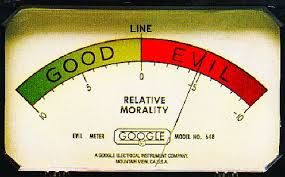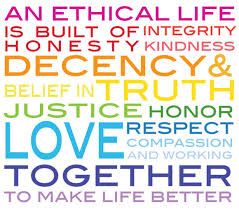Polyamory
(Im)Morality and Polyamory
Can polyamorous families provide children with a sense of right and wrong?
Posted November 18, 2013
One of the common arguments against polyamory is that it is immoral. While polyamory does not fit conventional morality any better than other forms of consensual non-monogamy, it does provide adults and children with clear ethical guidelines.
Morality

Morality identifies a sharp divide between two polar opposites.
Many of the people in the United States who object to polyamory point out that “the” Bible (by which I think they mean the New Testament) requires all sexuality to be contained within a religiously and often legally recognized marriage. Obviously other religions also require monogamy, but people who object to polyamory rarely mention them. Ironically, many portions of the collection of writings described as “the” Bible (especially the Old Testament or Torah) are replete with polygyny, with one husband married to several wives and all of them begetting away. Even so, most mainstream versions of contemporary Christianity view monogamy as definitional to marriage, and marriage as mandatory for a proper relationship.
Contemporary social mores cast monogamy as right in the sense that it is essentially and eternally good, the only morally correct option in a world of increasingly casual debauchery. Non-monogamy, in contrast, can strike many people (even those who don’t actively practice Christianity) as deeply wrong. Ironically again, cheating can seem more benign than polyamory because at least cheating fits a monogamous model: Cheaters “lose control” and “give in” to lust but then have the decency to feel shame and remorse, confess their sins and vow never to stray again (at least until the next time they lose control). Infidelity is thus a moment of weakness, certainly not something to be coolly negotiated, scheduled, and conducted in front of the children. Desiring sex with others makes sense, many people feel that draw attraction to new people even when they are happily partnered already. Polyamory is unabashedly non-monogamous and more directly challenges conventional morality with its brazen rejection of sexual (and emotional) exclusivity.
Ethics
While morals tend to be absolute and are usually grounded in religious tenets, ethics are more situational and emphasize conduct. Rather than an external set of rules that define good and bad behavior, ethics is an internal sense of what is right and wrong depending on how an action fits with internalized values and affects other people. Ethics are often specific to a group or sub-culture, so that a roller-derby team will have a unique sense of what is right or wrong in their group when compared to a church choir or a 4-H club.
Polyamorous Ethics

This saying epitomizes a polyamorous code of ethics.
So is polyamory immoral? Yes, if morality is conceived narrowly as adherence to a specific version of some religious tenets. Polyamory might better be conceived of as amoral in the sense that it rejects the kind of morality that demands sexual exclusivity. The polyamorous obsession with honesty and self-responsibility encourages a highly ethical (at least ideally) relationship style. Of course poly people lie and cheat too, they are mere mortals after all. But with their concern for truth and care for others’ wellbeing, polys have a built in ethical system to help them decide what is right. Children in poly families observe important adults in their lives (again ideally) telling each other the truth even when it is not convenient, taking responsibility for their actions, and caring for eachother. While they do not provide a conventional moral framework, poly families definitely furnish children with ethical guideposts to direct their behavior and treatment of others.


